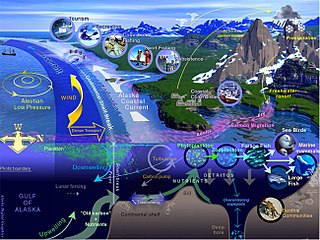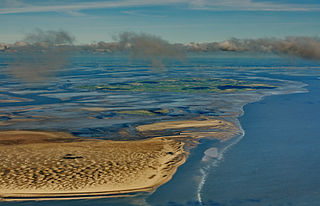
The Wadden Sea is an intertidal zone in the southeastern part of the North Sea. It lies between the coast of northwestern continental Europe and the range of low-lying Frisian Islands, forming a shallow body of water with tidal flats and wetlands. It has a high biological diversity and is an important area for both breeding and migrating birds. In 2009, the Dutch and German parts of the Wadden Sea were inscribed on UNESCO's World Heritage List and the Danish part was added in June 2014.

Fauna is all of the animal life present in a particular region or time. The corresponding term for plants is flora. Flora, fauna and other forms of life such as fungi are collectively referred to as biota. Zoologists and paleontologists use fauna to refer to a typical collection of animals found in a specific time or place, e.g. the "Sonoran Desert fauna" or the "Burgess Shale fauna". Paleontologists sometimes refer to a sequence of faunal stages, which is a series of rocks all containing similar fossils. The study of animals of a particular region is called faunistics.

Fauna & Flora International (FFI), formerly the Fauna and Flora Preservation Society, is an international conservation charity and non-governmental organization.

The depressed river mussel or compressed river mussel, Pseudanodonta complanata, is a species of freshwater mussel, an aquatic bivalve mollusk in the family Unionidae, the river mussels. The species name comes from the flattened shape of its shell.

The thick shelled river mussel is a species of freshwater mussel, an aquatic bivalve mollusk in the family Unionidae, the river mussels.

Gyraulus crista, commonly called the Nautilus ramshorn, is a minute species of freshwater snail, an aquatic pulmonate gastropod mollusk in the family Planorbidae, the ram's horn snails.

The shining ram's-horn snail, Segmentina nitida, is a species of minute, air-breathing, freshwater snail, an aquatic gastropod mollusk or micromollusk in the family Planorbidae, the ramshorn snails.
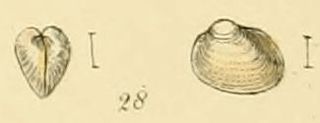
Pisidium casertanum, the pea cockle or pea clam, is a minute freshwater bivalve mollusc of the family Sphaeriidae.
Pisidium tenuilineatum, the fine-lined pea mussel, is a species of very small freshwater bivalve in the family Sphaeriidae.

Tandonia rustica is a species of air-breathing, keeled, land slug, a shell-less terrestrial gastropod mollusk in the family Milacidae.

Cecilioides acicula, common name the "blind snail" or "blind awlsnail", is a species of very small, air-breathing land snail, a terrestrial pulmonate gastropod mollusk in the family Ferussaciidae.
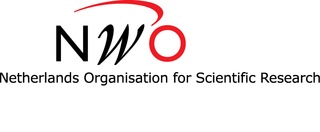
The Netherlands Organisation for Scientific Research is the national research council of the Netherlands. NWO funds thousands of top researchers at universities and institutes and steers the course of Dutch science by means of subsidies and research programmes. NWO promotes quality and innovation in science.
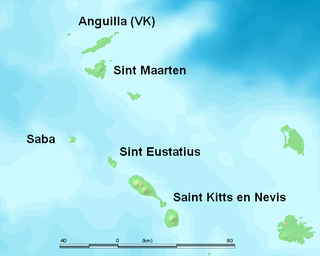
The Saba Conservation Foundation (SCF) is a non-governmental organization that is concerned with the conservation of the natural and cultural heritage of the small Caribbean island of Saba, which is a part of the Kingdom of the Netherlands. Saba is part of the inner arc of the Leeward Islands chain of the Lesser Antilles.

Dardanus pedunculatus, the anemone hermit crab, is a species of hermit crab from the Indo-Pacific region. It lives at depths of up to 27 m and collects sea anemones to place on its shell for defence.
Rykel de Bruyne is a Dutch malacologist.

Dardanus calidus is a species of hermit crab from the East Atlantic and Mediterranean Sea.

Utrechtse Heuvelrug National Park is a national park in the Dutch province of Utrecht. When it was founded in 2003, the park covered 6,000 ha of heathlands, shifting sands, forests, grass lands and floodplains. In 2013 the park was extended to 10,000 ha, adding the area north of highway A12 when the ecoduct Mollebos was realized. The most striking landscape feature is the glacial ridge after which the park is named.
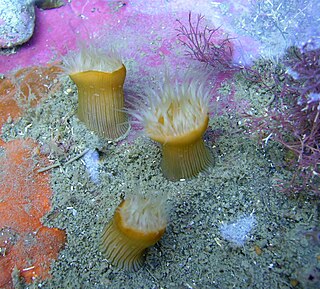
Anthothoe albocincta, or white-striped anemone, is a species of sea anemone in the family Sagartiidae. It is native to the coasts of Australia and New Zealand.

The Nederlandse Publieke Omroep or Dutch Foundation for Public Broadcasting is a Dutch public broadcasting organization that administers the public broadcasting service in the Netherlands. The NPO is also the owner of the radio-spectrum license and public DVB-T and DAB+ frequencies.

Actinostola callosa is a species of sea anemones in the family Actinostolidae in the order Actiniaria. It is a deep sea species and occurs in both Pacific and Atlantic Oceans from the continental shelf to abyssal depths.

